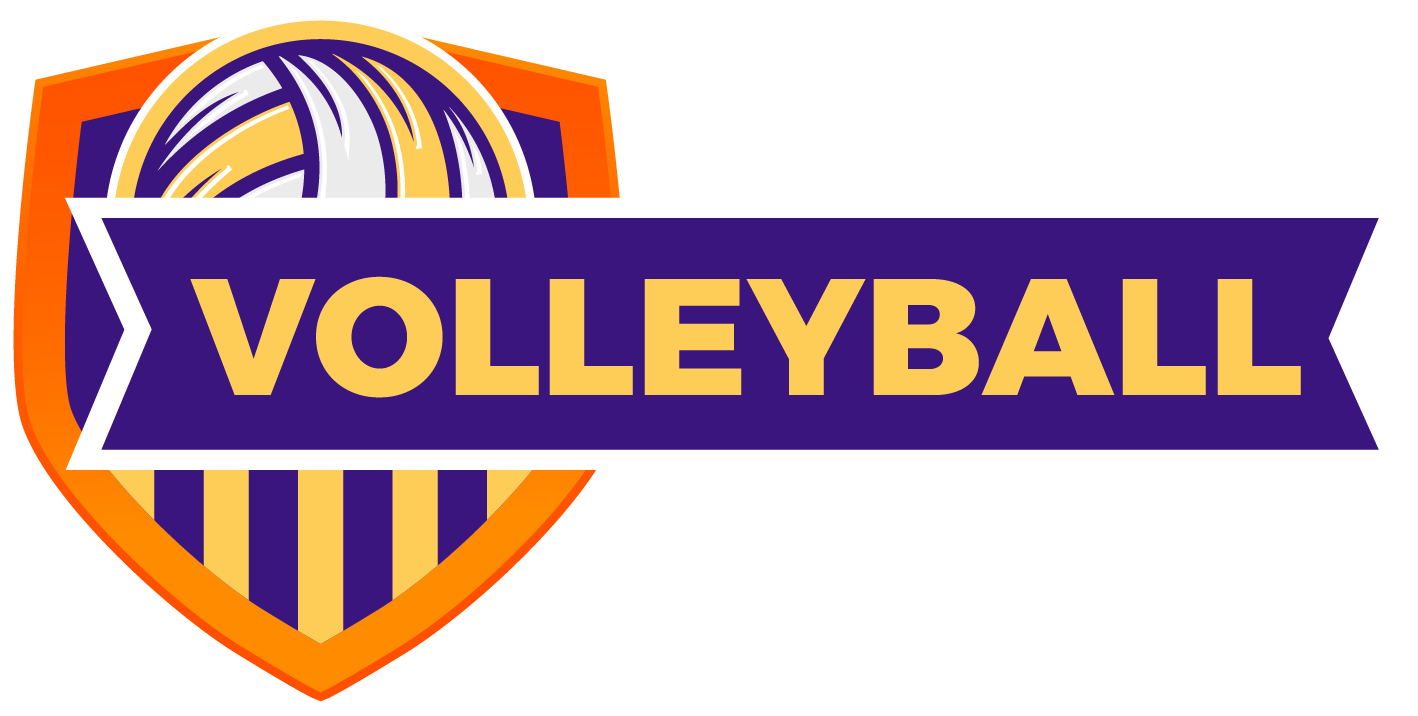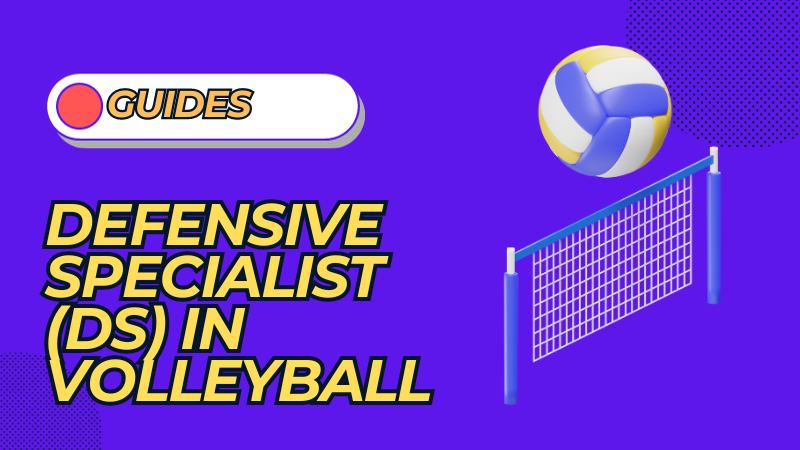In the dynamic and fast-paced game of volleyball, each player’s role is integral to the team’s success. Among the many positions, one that often goes unnoticed but plays a pivotal role in the team’s defense is the Defensive Specialist or DS. This position is frequently overshadowed by more prominent roles like the setter or the outside hitter. Yet, a DS’s contribution to the game is undeniably vital.
The Defensive Specialist is the unsung hero on the court, working tirelessly to cover ground quickly and making great digs. Unlike the libero, the DS doesn’t wear a unique jersey and can play both front and back row. Unfortunately, the DS is probably the least well-known role in volleyball and is constantly overlooked.
Teams with a strong DS consistently perform better at higher levels. They’re the glue holding the defense together, transforming good teams into great ones. In this article, we’ll explore the unique role of the DS in volleyball, uncovering the importance and complexity of this fascinating position.
What Is a Defensive Specialist (DS) In Volleyball?
A Defensive Specialist (DS) in volleyball is proficient in defense technique and strategy, focusing on sound passing skills and great digging. Unlike other roles like the libero, the DS can play both the front and back row and doesn’t wear a unique jersey.
This position stands apart as the role of the DS is to substitute weaker players on the team and bolster their team’s performance defensively and mentally during tough matches. Often considered one of the more mobile and agile players, the DS quickly covers a lot of ground, making vital saves and helping the team in close game scenarios.
The DS in volleyball might be lesser known, but its importance in shaping the game’s dynamics is unarguable. Whether making quick dives to save a point or passing the ball with precision, the DS is a vital cog in the machine that drives a successful volleyball team.
The specificity and complexity of this role make the DS a unique and essential part of any volleyball squad. The position demands exceptional skill, a cool temperament, and relentless commitment.
How Important is a Defensive Specialist in Volleyball?
A Defensive Specialist (DS) in volleyball holds immense importance, especially in close game scenarios. With their sound passing and great digging skills, a good DS can substantially impact the game, helping the team side out and securing crucial points.
The importance of a DS transcends just physical skills. They are the unsung heroes, often stepping in to substitute weaker players and strengthen the team’s defense. Their presence on the court can significantly enhance the team’s confidence and resilience during tough matches.
Moreover, a DS’s mobility around the court adds an extra layer of defense. They are usually one of the more agile players on the team, covering a lot of ground quickly, and their adaptability enables them to fill in various roles when needed.
In a sport where every point counts, the role of a DS is often the difference between victory and defeat. They bring unique skills and a mindset that complements the other players, creating a well-rounded and effective team. Teams that recognize the value of a DS often find themselves performing better at higher levels, a testament to the essential role a Defensive Specialist plays in the game of volleyball.
What Is the Difference Between a Defensive Specialist and a Libero
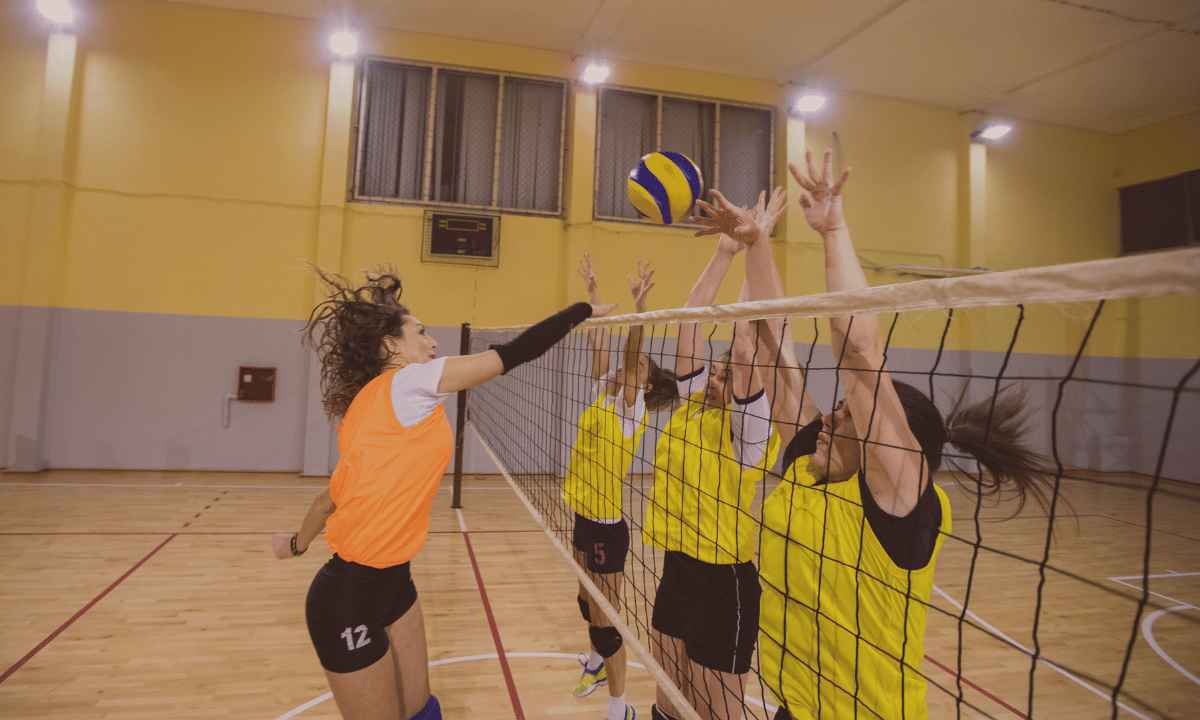
As we delve into the nuanced roles within a volleyball team, it’s essential to understand the distinctions between two key defensive positions: the Defensive Specialist (DS) and the Libero. While they may seem similar, their differences define the game’s dynamics. Let’s explore these distinctions through specific aspects.
Jersey Color
Unlike the libero, who wears a different colored jersey to distinguish their unique role, the defensive specialist does not have this distinction. While the libero’s unique jersey emphasizes their responsibility for passing and defense, the DS abides by the normal substitution rules, wearing the same colored jersey as the rest of the team.
Spiking
The primary role of a defensive specialist is to pass and dig; he is not typically responsible for spiking. Conversely, the libero is restricted because they cannot spike or contact the ball above the net’s height. The DS’s ability to spike adds versatility to their role, providing additional offensive options when necessary.
Court Mobility
Defensive specialists must be quick and agile, moving around the court to make essential saves. While both the DS and libero must cover much ground, the DS’s mobility extends to the front row, unlike the libero, who plays only in the back row. This extended range allows the DS to contribute to offensive and defensive plays.
Game Time
Regarding game time, defensive specialists usually substitute for a front-row player and only play in the back row. Unlike the libero, who does not abide by the normal substitution rules, the DS is only in for three of the six rotations. This substitution pattern allows the DS to bolster the team’s defense at crucial moments, demonstrating the strategic significance of this position.
Also, Read: How to Score and Win with Basic Volleyball Rules
Why Defensive Specialist Is a Great Position to Play?
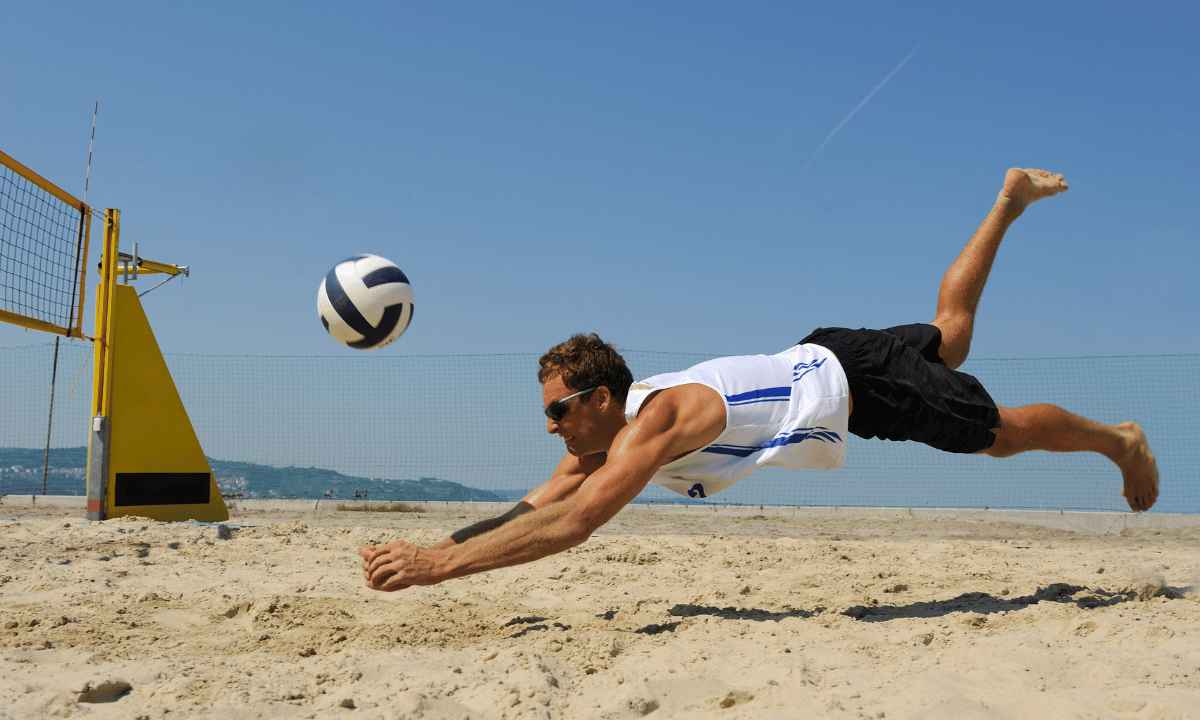
Playing as a Defensive Specialist (DS) in volleyball is an incredibly rewarding and pivotal role. This position isn’t just about physical skills, character, intelligence, and strategic thinking.
A DS is often considered the backbone of a team’s defense, a player who embodies resilience and adaptability. Their role requires them to be quick, agile, and possess exceptional passing and digging abilities. They are the ones who make those unbelievable saves that can turn the tide of a game.
What makes this position truly great is the impact a DS can make in close game scenarios. With their expertise, they help the team side out, contributing to crucial points and often making the difference between a win and a loss.
Furthermore, the position of DS offers a unique opportunity to showcase leadership and teamwork. A great DS must keep their cool under pressure, guiding their teammates and keeping morale high. The role demands continuous growth and learning, pushing players to hone their skills and understand the game from a strategic perspective.
In a sport filled with energy, emotion, and competition, the DS stands out as a position that brings depth and dynamism to the game. It’s a position that recognizes the importance of defense in winning matches and celebrates those players willing to dive, dig, and dedicate themselves to their team’s success. Being a DS is not just about playing a part; it’s about being a vital team component, contributing to victories, and embracing the essence of the volleyball game.
Also, Read: How to Get Better at Volleyball
How Important Is a Defensive Specialist in Volleyball?
A Defensive Specialist (DS) in volleyball holds immense importance, especially in close game scenarios. With their sound passing and great digging skills, a good DS can substantially impact the game, helping the team side out and securing crucial points.
The importance of a DS transcends just physical skills. They are the unsung heroes, often stepping in to substitute weaker players and strengthen the team’s defense. Their presence on the court can significantly enhance the team’s confidence and resilience during tough matches.
Moreover, a DS’s mobility around the court adds an extra layer of defense. They are usually one of the more agile players on the team, covering a lot of ground quickly, and their adaptability enables them to fill in various roles when needed.
In a sport where every point counts, the role of a DS is often the difference between victory and defeat. They bring unique skills and a mindset that complements the other players, creating a well-rounded and effective team. Teams that recognize the value of a DS often find themselves performing better at higher levels, a testament to the essential role a Defensive Specialist plays in the game of volleyball.
Also, Read: How to Bump a Volleyball
Drills to Master for a Defensive Specialist
In the fast-paced game of volleyball, mastering specific drills is essential for a Defensive Specialist (DS) to enhance their skills and maintain a competitive edge. These drills focus on passing, diving, and back-row hitting, all integral to a DS’s role. Let’s delve into some of the essential drills that a DS must practice to be at the top of their game:
Double Feeder Passing
This drill helps in honing a DS’s passing skills. Two feeders send balls alternately to the DS, enhancing their ability to read and react to different passes. It improves coordination and anticipation.
A Balloon and a Ball
A fun yet challenging drill involves keeping a balloon in the air while passing a volleyball. This drill increases hand-eye coordination and teaches control over passing, which is essential for a DS.
Passing to Dive
A DS must be agile and quick to dive for balls. This drill involves a player diving to pass a ball directed to one side, teaching how to dive correctly and efficiently without losing balance.
Back Row Hitting Drills
A DS needs to master hitting from the back row. This drill involves practicing various back-row attacks, teaching the DS to adapt their hitting technique depending on the situation.
Diving Drills
The diving drills focus on improving a DS’s ability to reach for difficult balls. By practicing different types of dives and recoveries, the DS enhances their agility and reflexes, key components of successful defensive plays.
By focusing on these drills, Defensive Specialist sharpens their skills and adds new dimensions to their game. The fusion of agility, precision, and strategy through these drills makes a DS an invaluable asset to any volleyball team.
Why Defensive Specialist May Be the Toughest Position on the Team?
The position of a Defensive Specialist (DS) in volleyball may appear to be the toughest on the team, and there’s good reason to believe so.
Firstly, a DS must possess exceptional passing and digging abilities. The requirement for constant agility and quick reflexes means they must always be on their toes. Covering a lot of ground quickly, they’re often the team’s first line of defense, expected to respond to powerful spikes from the opposition.
Secondly, the mental pressure on a DS is intense. They must keep cool under extreme pressure, especially during close game scenarios. Their ability to substitute weak players and bolster the team’s defense requires physical prowess, strategic insight, and emotional resilience.
Lastly, the DS must adapt to different game situations, often filling in for other players and fulfilling roles that might be outside their primary responsibility.
The combination of physical demands, mental strength, adaptability, and a wide array of required skills makes the DS position arguably the most challenging and complex role on a volleyball team. Their contribution, though less visible, is often what keeps the team in the game during crucial moments.
Also, Read: How Much Do Professional Volleyball Players Make?
Why Do Teams Need Both a Defensive Specialist and a Libero?
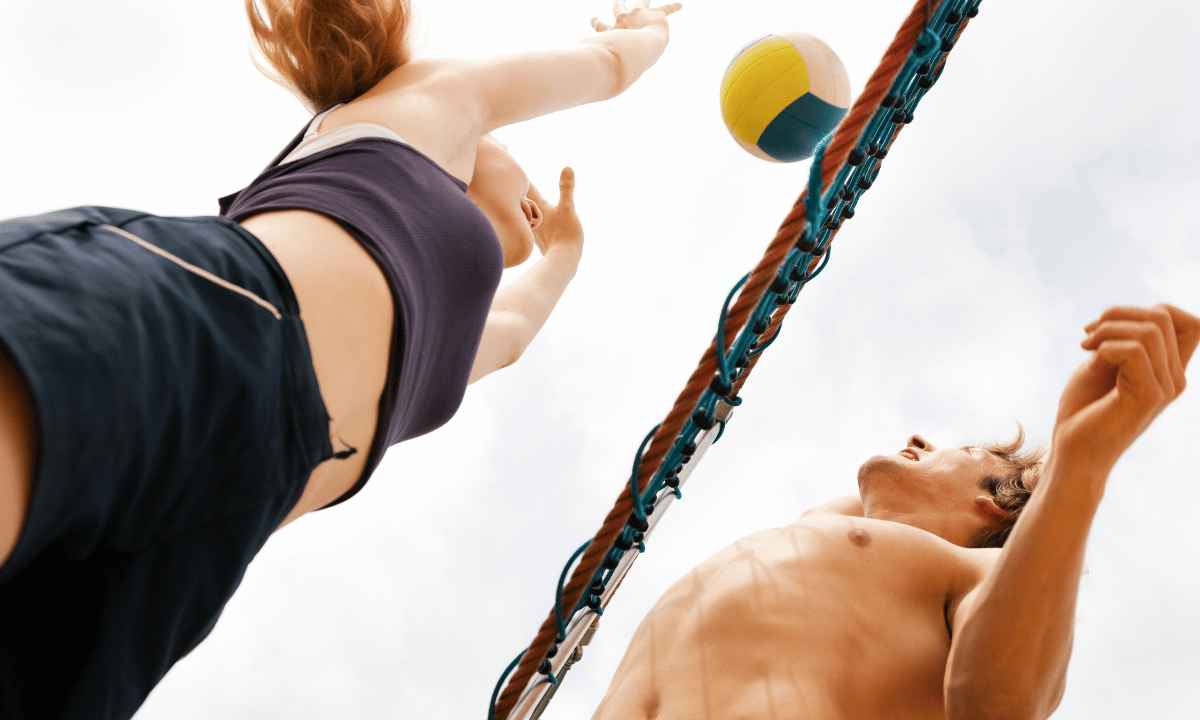
In the fast-paced and strategic game of volleyball, having a Defensive Specialist (DS) and a Libero on a team is more than just a tactical choice; it’s necessary.
The libero, primarily responsible for passing and defense, has specialized restrictions and allowances. They play exclusively in the back row, wearing a different colored jersey, and have limitations like being unable to spike the ball.
On the other hand, the DS is a versatile player who doesn’t wear a unique jersey and can play both front and back row. Unlike the libero, the DS can spike, adding an extra offensive dimension to their role.
These two positions complement each other, offering a balanced and robust defense. While the libero focuses on passing and maintains the back-row defense, the DS can substitute weak players, bolster the team’s defense, and contribute offensively when needed.
Combining these roles gives the team flexibility and strength in different game scenarios. By having a DS and a Libero, a team ensures they have the necessary agility and skill set to adapt to various challenges on the court, creating a more cohesive and resilient defensive strategy. This dual-role approach consistently leads teams to perform better at higher levels, making it an essential aspect of modern volleyball.
What Makes a Good DS in Volleyball?
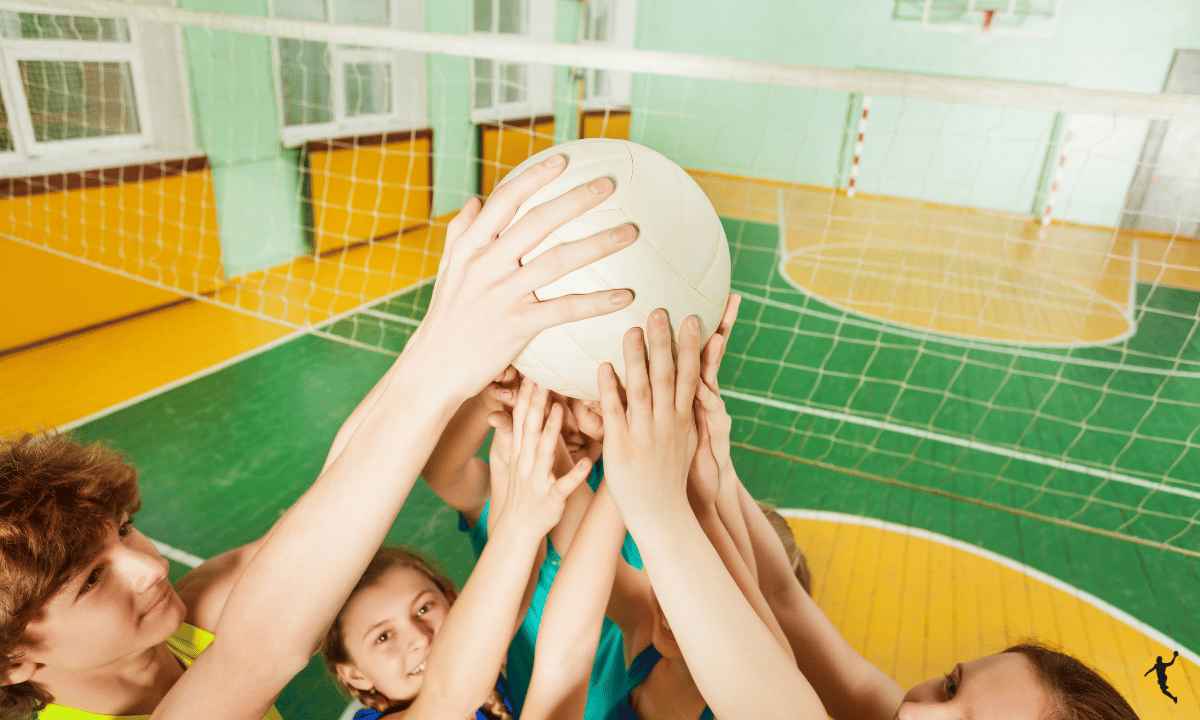
In my extensive career playing with 327 teammates across 618 matches, I’ve learned that the Defensive Specialist (DS) in volleyball is a role that demands a unique blend of skills. A good DS can often make a difference in close game scenarios. Let’s dive into what sets apart a great DS in this competitive sport.
Keeps Their Cool Under Pressure
The game of volleyball is fraught with high-intensity moments. For a DS, keeping a cool head under pressure is essential. A DS who panics can make errors, but one who maintains composure can execute plays that might turn the tide of a match. It’s not just about physical skill but mental fortitude.
Exceptional Passing Ability
Passing is the lifeline of any good offense in volleyball. A DS must have a mastery of passing techniques. Their sound passing skills are a cornerstone for setting up plays, enabling hitters, and maintaining fluidity. The exceptional passing ability allows the DS to connect the different parts of the team seamlessly.
Back Row Hitting Ability Is a Bonus
While the primary responsibility of a DS revolves around defense, having back-row hitting ability can be a bonus. This skill adds an extra dimension to the DS’s game, allowing them to attack the ball and contribute to scoring points. Though not required, this offensive ability enhances the overall effectiveness of a DS and adds a layer of unpredictability that can confuse opponents.
In summary, the qualities that make a good DS in volleyball extend beyond mere technical skills. It includes an understanding of the game, psychological strength, and the ability to contribute in various ways on the court. These attributes make a DS a crucial asset in any competitive volleyball team.
Also, Read: What Is a Lift in Volleyball
Conclusion
The role of a Defensive Specialist (DS) in volleyball is complex and multifaceted, often overlooked but vital for a team’s success. A DS’s responsibilities are diverse, from sound passing skills to exceptional digging and even the ability to contribute to offense through back-row hitting.
Unlike the libero, the DS doesn’t wear a unique jersey and has the flexibility to play both front and back row, adding to the team’s strategic depth. Their mental fortitude, agility, and adaptability make them a great asset, especially in close game scenarios.
In sum, a DS in volleyball is a unique position that requires a combination of specific skills and attributes. Whether it’s keeping cool under pressure, excelling in passing or adding a bonus with back-row hitting ability, the DS is an essential part of a competitive volleyball team, integral to defense and offense. Their role highlights the richness and strategic complexity that makes volleyball such an enthralling game to play and watch.
FAQS:
What Does DS Stand For in Volleyball?
DS stands for “defensive specialist” in volleyball. It’s a specific position responsible for sound passing and great digging, often a key defensive player.
Is a Defensive Specialist a Blocker in Volleyball?
Defensive specialists are not typically responsible for blocking. Their primary role is to pass and dig, providing crucial defense for their team.
What’s the Average Height of a Defensive Specialist?
There is no specific height requirement for a defensive specialist in volleyball. What matters more is their agility, quickness, and ability to move around the court effectively.
How Many Defensive Specialists Are There in Volleyball?
The number of defensive specialists on a team can vary. It depends on the team’s strategy and the specific demands of the game. Some teams might have one or several players who can fill the DS role.
Is DS and Libero the Same Thing?
While the DS position is often confused with the libero, key differences exist. Unlike the libero, the DS doesn’t wear a unique jersey and can play both front and back row. The DS can also spike or contact the ball above the net’s height, whereas the libero cannot. The two positions, although related in their defensive duties, have distinct rules and responsibilities.
